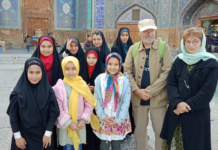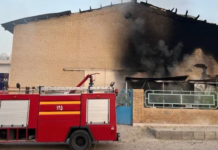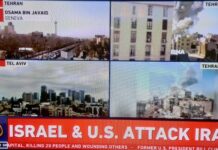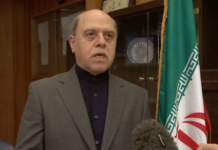
Pacific Media Watch Newsdesk
A request by the Philippines’ biggest radio and TV network for a new franchise has been rejected by a congressional committee in a vote that will go down in history as a flagrant violation of the country’s constitution, says Reporters Without Borders (RSF).
The Paris-based media freedom watchdog has urged support for the #HoldTheLine coalition as the way to respond.
TV screens will remain dark and radio sets silent as a result of yesterday’s decision by the House Committee on Legislative Franchises to drive the final nails into the ABS-CBN network’s coffin.
READ MORE: #HoldTheLine campaign launched to back Maria Ressa, independent media
Last May, the Philippine congress refused to renew the network’s 25-year franchise when it expired. Today the committee voted overwhelmingly, by 70 votes to 11, not to give it a new one.
Between the two decisions, ABS-CBN’s representatives argued their cause in a series of 13 hearings lasting a total of around 100 hours.
But the committee’s members, most of whom support President Rodrigo Duterte, responded with a range of accusations against the network’s management, including tax evasion and violation of the law on foreign investment in the media.
“Rump parliament”
Above all, they implied that any decision to give ABS-CBN’s TV channels and radio stations a new franchise would be conditioned on a change in editorial policy and on coverage favourable to the Duterte administration’s nationalist and populist policies. The network refused.
This means that ABS-CBN has little chance of getting a new franchise before the end of the current legislature in 2022 – a legislature in which the overwhelming majority behaves likes a “rump parliament” blindly following the executive, said RSF in a statement.
“The parliamentarians who rejected this request for a new franchise will go down in history as legislators who preferred to support the ruling caste’s personal interests instead of defending the spirit of the 1987 constitution,” said Daniel Bastard, head of RSF’s Asia-Pacific desk.
“This vote is like a thunderbolt in the Philippine media landscape’s already troubled sky. It should be noted that, in a sign of how the independent media are persecuted, many of the spurious arguments used by parliamentarians hostile to ABS-CBN were identical to those that government agencies have been using against the Rappler news website.”
Repeated attacks
Rappler and its CEO, Maria Ressa, are also charged with tax evasion and violating the law on foreign investment in the media although “even the quickest analysis shows that the cases against them are riddled with legal inconsistencies”, said RSF.
Compounding all the previous judicial harassment, Ressa and a former Rappler reporter, Reynaldo Santos Jr, were convicted last month on a “Kafkaesque cyber-libel charge” carrying a sentence of up to six years in prison.
In response to these “repeated attacks on the Fourth Estate by the Duterte clique, which has managed to corrupt both legislature and judiciary”, RSF has launched an international “HoldTheLine” campaign in support of independent media that are trying to hold out in the Philippines.
An online petition demands the withdrawal of all the spurious charges against Maria Ressa, Rappler and its journalists.
The Philippines is ranked 136th out of 180 countries and territories in RSF’s 2020 World Press Freedom Index, two places lower than in 2019.
The Pacific Media Centre’s Pacific Media Watch freedom project is an associate of Reporters Without Borders.















































